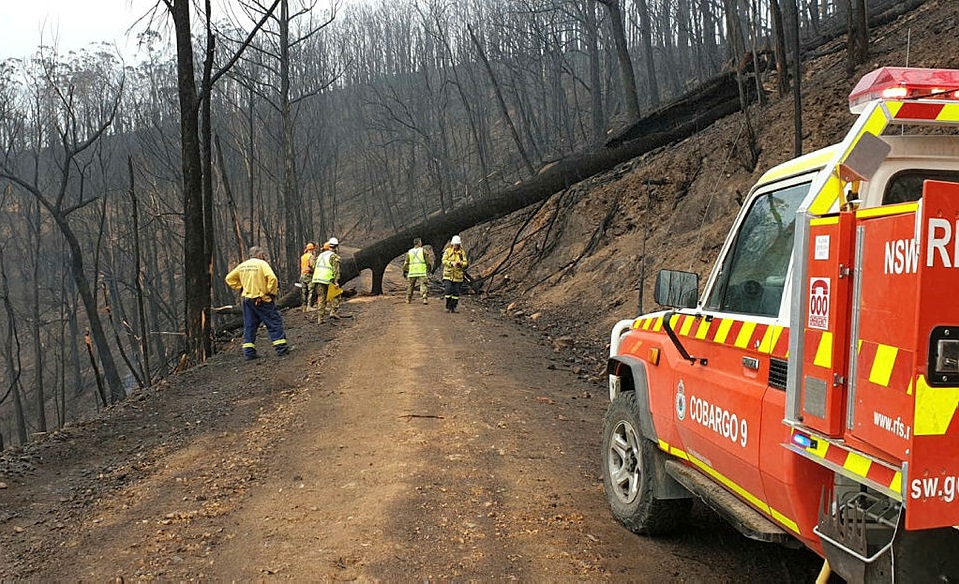
The beat
Expanded powers for protective services in Victoria may continue
Victoria Police and the state government want to continue to use protective services officers (PSOs) in their expanded role introduced for the Covid-19 emergency. The Victorian government introduced PSOs in 2012 to patrol and monitor transport hubs such as train stations at night. Since the pandemic, their mandate has been expanded to include patrolling commercial areas during the lockdown. PSOs can carry guns, and have stopped and checked more than 7,000 people and made 406 arrests since the start of April.
Kenyan town not a cybercrime hotspot
A number of media outlets have picked up a report that Interpol had identified the small Kenyan town of Juja, on the outskirts of Nairobi, as a hotspot for cybercrime. The story was later found to have originated on a satirical news site and has now been debunked. But real cybercrime in Kenya is on the rise, with 37.1 million cyber threats identified in the last quarter of 2019 alone. Singaporean cybersecurity company Group iB recently listed Kenya’s Silentcards as one of the top five cybercrime groups threatening the international financial sector.
CT scan
Senior Islamic State figure killed
The leader of the Islamic State terrorist group in Iraq was reportedly killed in a US-led coalition airstrike in Syria last week. According to the Iraqi Counter Terrorism Service, the strike was carried out using Iraqi intelligence that found Moataz al-Jubouri was planning and coordinating external terrorist operations. If confirmed, it would be the third killing of an Islamic State leader in the region in the past two weeks. While Iraqi Prime Minister Mustafa al-Kadhimi praised the strike, the US-led coalition has yet to comment.
Man sentenced over NYE terror plot
Ali Khalif Shire Ali, the brother of Hassan Khalif Shire Ali, who carried out the 2018 Bourke Street attack, has been sentenced to 10 years’ imprisonment for plotting a terror attack in Melbourne’s Federation Square on New Year’s Eve in 2017. Motivated by violent jihadist material, Ali had planned to kill as many people as possible. He attempted to purchase an AK-47 assault rifle from undercover Australian Federal Police officers. Ali has since denounced IS, saying he hates what the group did to his brother.
Checkpoint
Tensions rise as Chinese troops occupy Indian territory
An Indian media report quotes government officials as saying that close to 10,000 Chinese soldiers are occupying Indian territory on a disputed section of the border between the two countries. Indian and Chinese troops clashed earlier in May, but there’s been no official confirmation from either country about a renewed standoff. Analysts say it’s likely that backchannel diplomatic discussions are occurring to avoid further escalation. India’s foreign ministry has said both sides ‘attach utmost importance to the maintenance of peace and tranquillity’ in the region.
Greece fears post-pandemic migrant influx
Greece has renewed concerns about a possible standoff on its border after Turkey said migrants may return to the frontier as coronavirus restrictions are eased. Earlier this year, Turkish President Recep Tayyip Erdogan made a declaration that resulted in thousands of refugees and migrants attempting to reach Greece. Border tensions escalated after Greece said it would extend a fence along the Evros River, and Turkish military forces have reportedly occupied an island on the river.
First responder
Bushfire royal commission begins
The royal commission spurred by Australia’s ‘black summer’ of bushfires began hearings on Monday. The Bureau of Meteorology said the bushfire crisis was not a one-off and the CSIRO pointed to the role of climate change in creating dangerous conditions for bushfires. Health experts and researchers told the commission that 80% of Australians were affected by bushfire smoke during the 2019–20 fire season. Health costs associated with the smoke have been estimated at $2 billion. The inquiry also heard calls for greater funding for agencies to better prepare for future fires.
Sweden defends coronavirus response
The Swedish government has defended its response to the Covid-19 pandemic despite the country recording one of the world’s highest death rates per capita, at around 40 deaths per 100,000 people. Norway’s death rate is far lower, at around four deaths per 100,000 people, as is Finland’s, at just over five. Sweden hasn’t implemented a full lockdown, instead taking an approach that seeks to develop herd immunity. However, a recent study found that in late April only 7.3% of people in Stockholm had developed Covid-19 antibodies.

